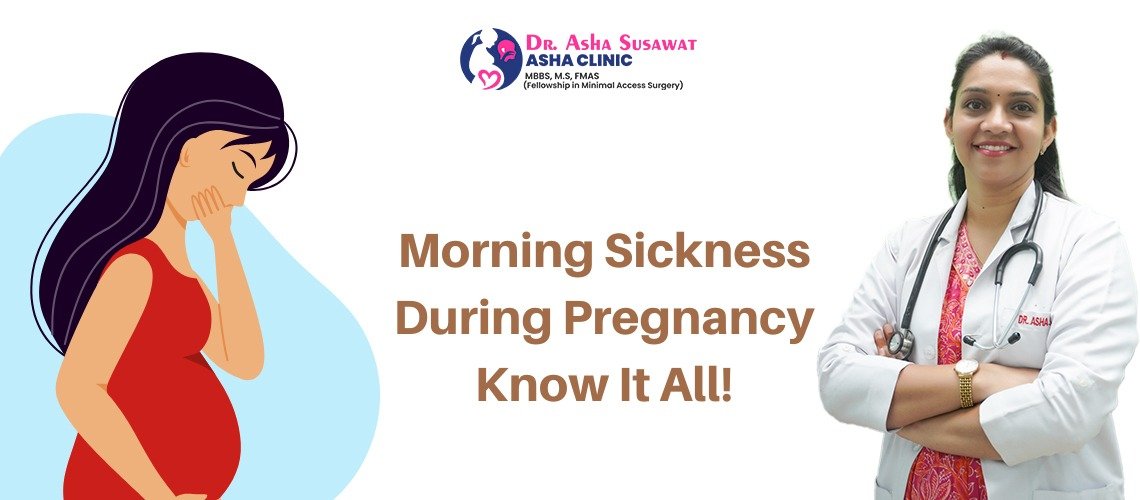Morning sickness during Pregnancy
Morning sickness during Pregnancy affects a significant number of women, ranging from half to two-thirds, typically peaking in the first trimester. Symptoms include nausea and vomiting, often more pronounced in the morning but potentially occurring throughout the day or night.
Most women start experiencing morning sickness around the fourth week of pregnancy, with symptoms easing between weeks 12 to 14. However, about 20% of women continue to have symptoms into the second trimester, and a small percentage endure them for the entire pregnancy duration.
While morning sickness is generally considered normal and does not usually pose risks to the mother or the baby, severe cases that involve significant weight loss or dehydration require immediate medical attention.
Causes of Morning Sickness during Pregnancy
Morning sickness, a common discomfort during pregnancy, is thought to arise from a combination of physical and hormonal changes. Healthcare providers believe several factors contribute to its onset, including low blood sugar levels, fluctuations in blood pressure, shifts in metabolism, and the surge of pregnancy hormones such as human chorionic gonadotropin (HCG) and estrogen. These hormonal changes play a significant role in triggering nausea and vomiting, especially during the early stages of pregnancy.
Several factors can exacerbate morning sickness symptoms. Stress and anxiety levels, along with fatigue from lack of sleep, have been linked to worsening nausea and vomiting. Certain odors or the act of eating specific foods can also trigger or intensify these symptoms. Motion sickness, such as traveling in cars or boats, and exposure to warm temperatures or humid conditions may further aggravate morning sickness in some women.
Although the exact cause of morning sickness remains uncertain, its onset and severity vary among individuals. While typically manageable and not harmful to the mother or baby, severe cases that lead to dehydration or weight loss require medical attention to ensure both maternal health and fetal well-being are maintained throughout pregnancy.

